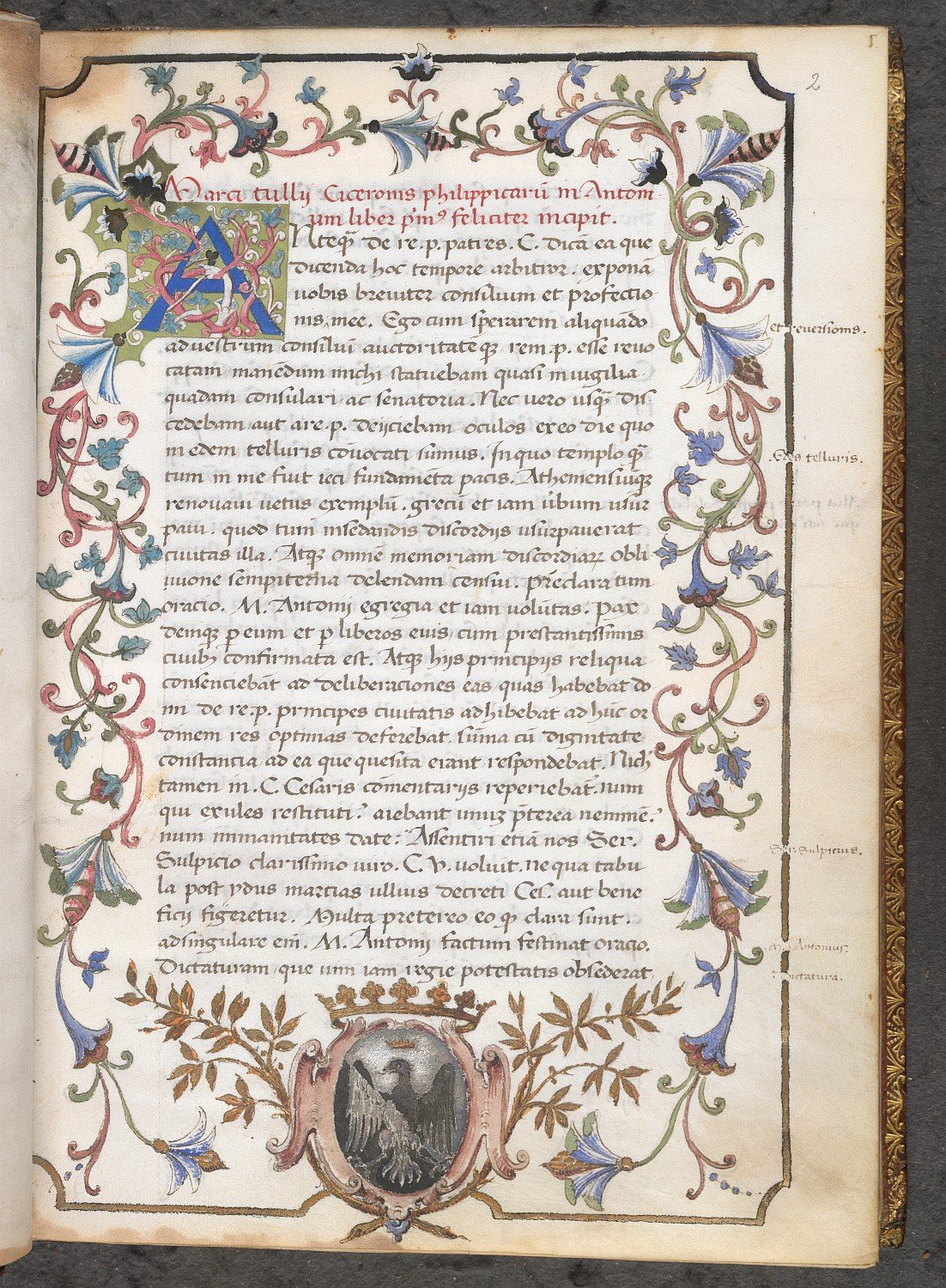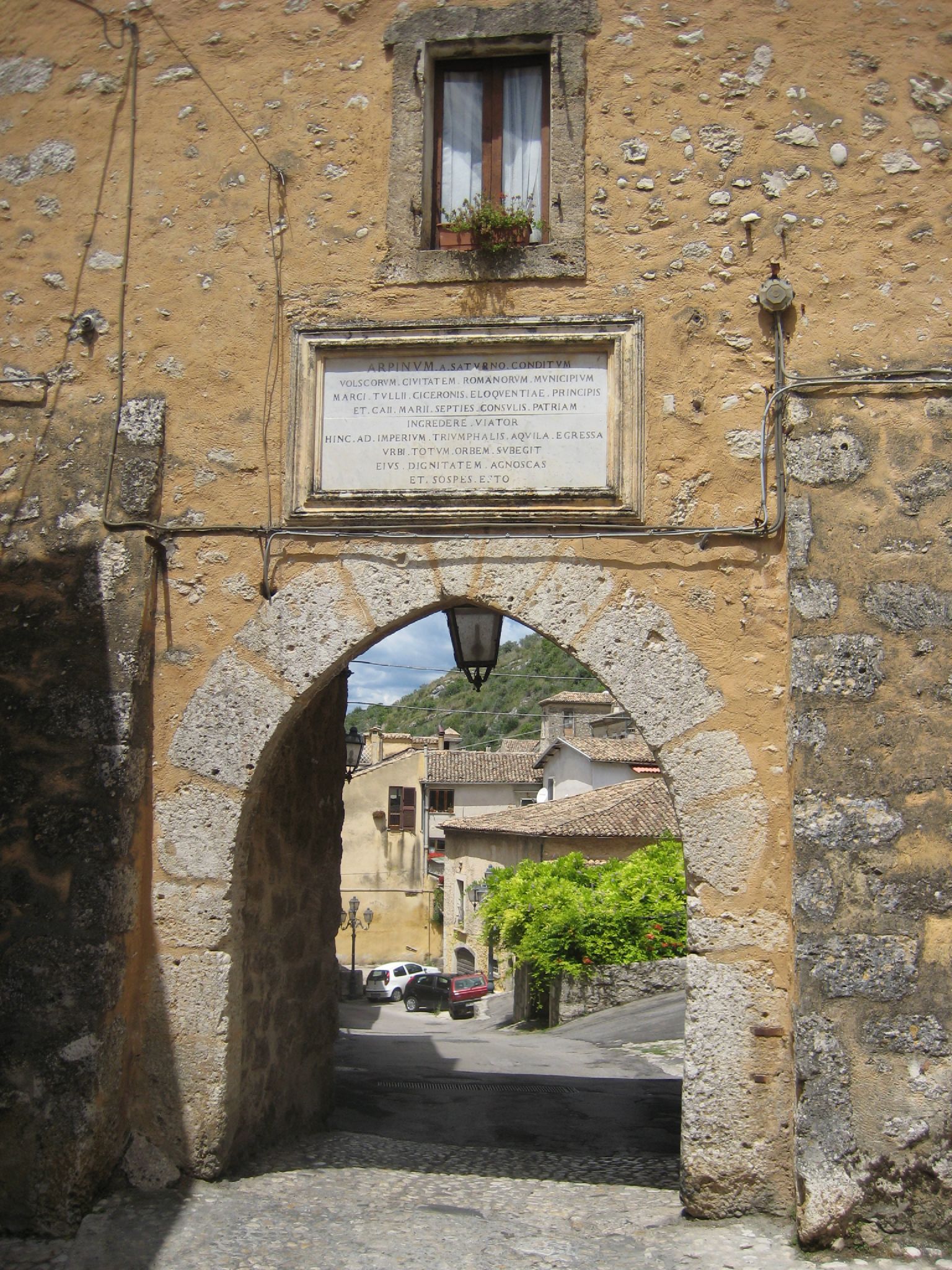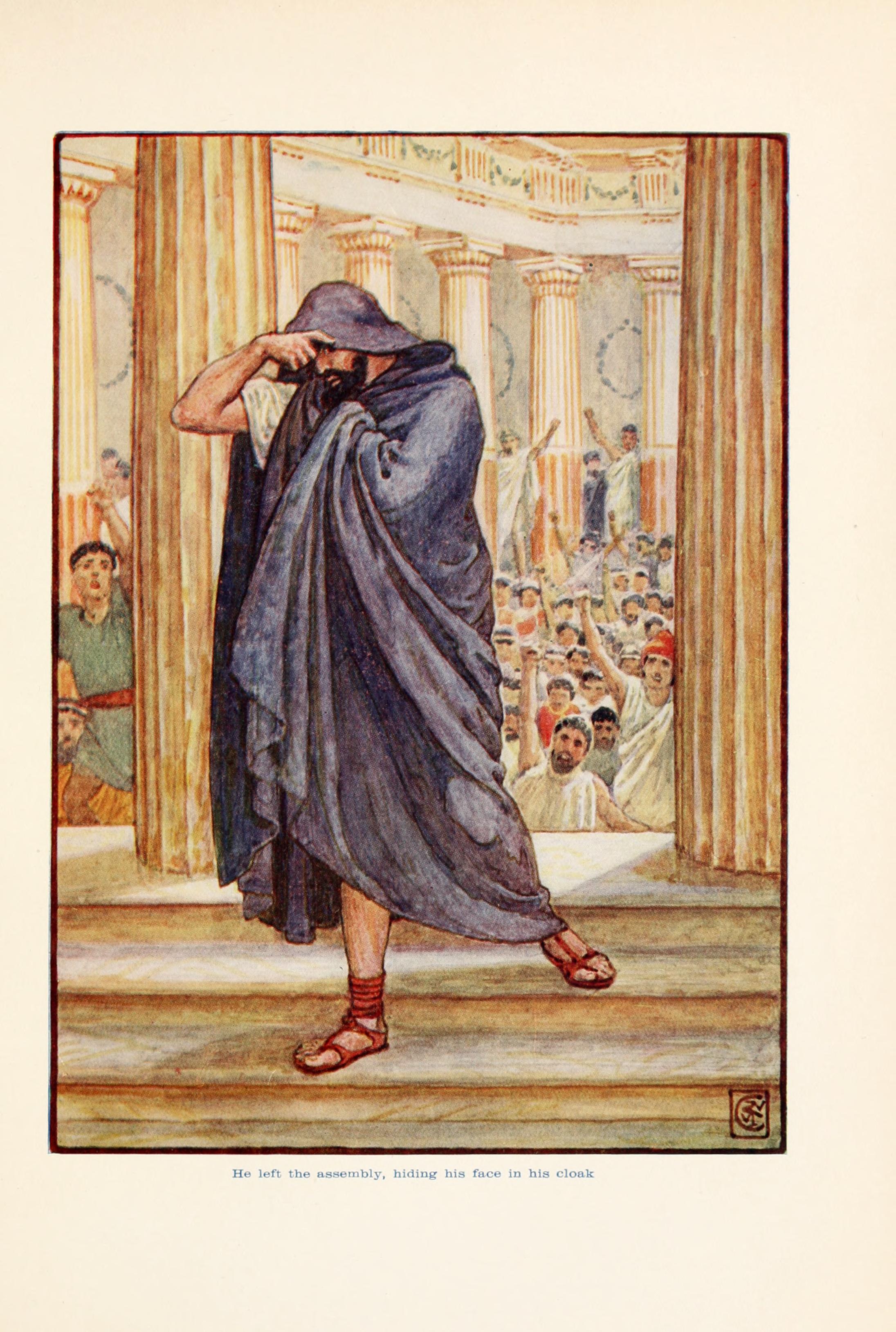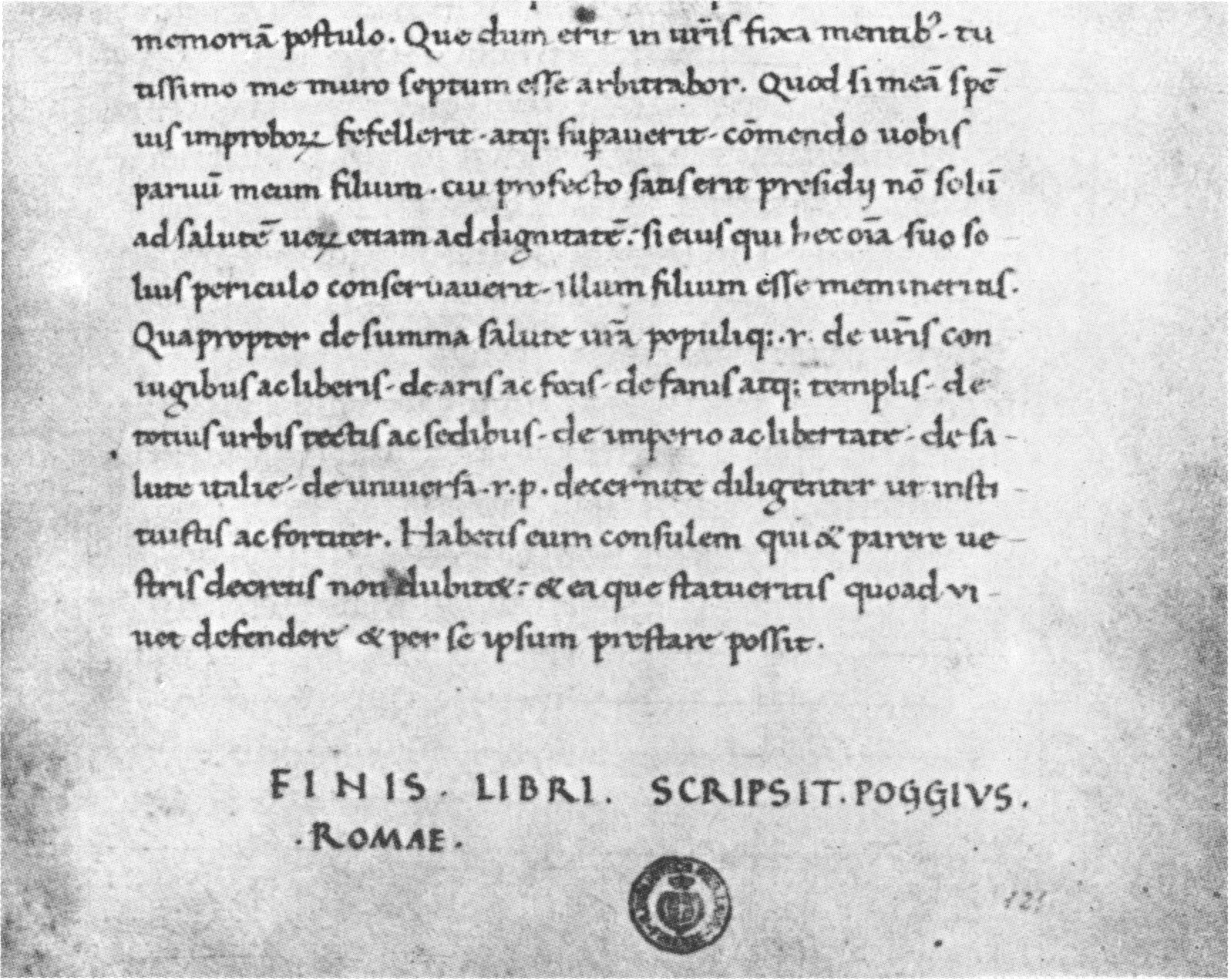|
Philippics
A philippic ()http://www.collinsdictionary.com/dictionary/English/philippic is a fiery, damning speech, or tirade, delivered to condemn a particular political actor. The term is most famously associated with two noted orators of the ancient world: Demosthenes of ancient Athens and Cicero of ancient Rome. The term itself is derived from Demosthenes' speeches in 351 BC denouncing the imperialist ambitions of Philip of Macedon, which later came to be known as ''The Philippics''. Greece The original "philippics" were delivered by Demosthenes, an Athenian statesman and orator in Classical Greece, who delivered several attacks on Philip II of Macedon in the 4th century BC. A First, Second, and Third Philippic have been ascribed to Demosthenes. A Fourth Philippic is also extant, but is of disputed authorship. Rome Cicero consciously modeled his own condemnations of Mark Antony on Demosthenes's speeches, and if the correspondence between Marcus Junius Brutus the Younger and Cicer ... [...More Info...] [...Related Items...] OR: [Wikipedia] [Google] [Baidu] |
Philippicae
The ''Philippics'' ( la, Philippicae, singular Philippica) are a series of 14 speeches composed by Cicero in 44 and 43 BC, condemning Mark Antony. Cicero likened these speeches to those of Demosthenes against Philip II of Macedon; both Demosthenes’s and Cicero's speeches became known as Philippics. Cicero's Second Philippic is styled after Demosthenes' ''De Corona'' ('On the Crown'). The speeches were delivered in the aftermath of the assassination of Julius Caesar, during a power struggle between Caesar's supporters and his assassins. Although Cicero was not involved in the assassination, he agreed with it and felt that Antony should also have been eliminated. In the Philippics, Cicero attempted to rally the Senate against Antony, whom he denounced as a threat to the Roman Republic. The Philippics convinced the Senate to declare Antony an enemy of the state and send an army against him. However, the commanders were killed in battle, so the Senate's army came under the co ... [...More Info...] [...Related Items...] OR: [Wikipedia] [Google] [Baidu] |
Pro Ligario
Marcus Tullius Cicero ( ; ; 3 January 106 BC – 7 December 43 BC) was a Roman statesman, lawyer, scholar, philosopher, and academic skeptic, who tried to uphold optimate principles during the political crises that led to the establishment of the Roman Empire. His extensive writings include treatises on rhetoric, philosophy and politics, and he is considered one of Rome's greatest orators and prose stylists. He came from a wealthy municipal family of the Roman equestrian order, and served as consul in 63 BC. His influence on the Latin language was immense. He wrote more than three-quarters of extant Latin literature that is known to have existed in his lifetime, and it has been said that subsequent prose was either a reaction against or a return to his style, not only in Latin but in European languages up to the 19th century. Cicero introduced into Latin the arguments of the chief schools of Hellenistic philosophy and created a Latin philosophical vocabulary w ... [...More Info...] [...Related Items...] OR: [Wikipedia] [Google] [Baidu] |
Marcus Tullius Cicero
Marcus Tullius Cicero ( ; ; 3 January 106 BC – 7 December 43 BC) was a Roman statesman, lawyer, scholar, philosopher, and academic skeptic, who tried to uphold optimate principles during the political crises that led to the establishment of the Roman Empire. His extensive writings include treatises on rhetoric, philosophy and politics, and he is considered one of Rome's greatest orators and prose stylists. He came from a wealthy municipal family of the Roman equestrian order, and served as consul in 63 BC. His influence on the Latin language was immense. He wrote more than three-quarters of extant Latin literature that is known to have existed in his lifetime, and it has been said that subsequent prose was either a reaction against or a return to his style, not only in Latin but in European languages up to the 19th century. Cicero introduced into Latin the arguments of the chief schools of Hellenistic philosophy and created a Latin philosophical vocabulary ... [...More Info...] [...Related Items...] OR: [Wikipedia] [Google] [Baidu] |
Mark Antony
Marcus Antonius (14 January 1 August 30 BC), commonly known in English as Mark Antony, was a Roman politician and general who played a critical role in the transformation of the Roman Republic from a constitutional republic into the autocratic Roman Empire. Antony was a relative and supporter of Julius Caesar, and served as one of his generals during the conquest of Gaul and the Civil War. Antony was appointed administrator of Italy while Caesar eliminated political opponents in Greece, North Africa, and Spain. After Caesar's assassination in 44 BC, Antony joined forces with Marcus Aemilius Lepidus, another of Caesar's generals, and Octavian, Caesar's great-nephew and adopted son, forming a three-man dictatorship known to historians as the Second Triumvirate. The Triumvirs defeated Caesar's killers, the ''Liberatores'', at the Battle of Philippi in 42 BC, and divided the government of the Republic between themselves. Antony was assigned Rome's eastern provinces, includi ... [...More Info...] [...Related Items...] OR: [Wikipedia] [Google] [Baidu] |
Demosthenes Orator Louvre
Demosthenes (; el, Δημοσθένης, translit=Dēmosthénēs; ; 384 – 12 October 322 BC) was a Greek statesman and orator in ancient Athens. His orations constitute a significant expression of contemporary Athenian intellectual prowess and provide insight into the politics and culture of ancient Greece during the 4th century BC. Demosthenes learned rhetoric by studying the speeches of previous great orators. He delivered his first judicial speeches at the age of 20, in which he successfully argued that he should gain from his guardians what was left of his inheritance. For a time, Demosthenes made his living as a professional speechwriter ( logographer) and a lawyer, writing speeches for use in private legal suits. Demosthenes grew interested in politics during his time as a logographer, and in 354 BC he gave his first public political speeches. He went on to devote his most productive years to opposing Macedon's expansion. He idealized his city and strove ... [...More Info...] [...Related Items...] OR: [Wikipedia] [Google] [Baidu] |
Demosthenes
Demosthenes (; el, Δημοσθένης, translit=Dēmosthénēs; ; 384 – 12 October 322 BC) was a Greek statesman and orator in ancient Athens. His orations constitute a significant expression of contemporary Athenian intellectual prowess and provide insight into the politics and culture of ancient Greece during the 4th century BC. Demosthenes learned rhetoric by studying the speeches of previous great orators. He delivered his first judicial speeches at the age of 20, in which he successfully argued that he should gain from his guardians what was left of his inheritance. For a time, Demosthenes made his living as a professional speechwriter ( logographer) and a lawyer, writing speeches for use in private legal suits. Demosthenes grew interested in politics during his time as a logographer, and in 354 BC he gave his first public political speeches. He went on to devote his most productive years to opposing Macedon's expansion. He idealized his city and stro ... [...More Info...] [...Related Items...] OR: [Wikipedia] [Google] [Baidu] |
Tirade
Invective (from Middle English ''invectif'', or Old French and Late Latin ''invectus'') is abusive, reproachful, or venomous language used to express blame or censure; or, a form of rude expression or discourse intended to offend or hurt; vituperation, or deeply seated ill will, vitriol. The Latin adjective ''invectivus'' means 'scolding.' The genre of invective The "genre of invective" or "''vituperatio''" in Latin is a classical literary form used in Greek and Roman polemical verse as well as in prose. Its primary context is as rhetoric. The genre of ''vituperatio'' belongs to the ''genus demonstrativum'', which is composed of the elements of the praise and the blame. During the Roman Republic, personal invectives and character assassination were widely used as part of both forensic speeches and orations. Cicero made frequent use of the invective form against political foes such as Clodius, Catilina (in the Catalinarian speeches) or Mark Antony (Philippics). Common charges ... [...More Info...] [...Related Items...] OR: [Wikipedia] [Google] [Baidu] |
Athenian
Athens ( ; el, Αθήνα, Athína ; grc, Ἀθῆναι, Athênai (pl.) ) is both the capital and largest city of Greece. With a population close to four million, it is also the seventh largest city in the European Union. Athens dominates and is the capital of the Attica region and is one of the world's oldest cities, with its recorded history spanning over 3,400 years and its earliest human presence beginning somewhere between the 11th and 7th millennia BC. Classical Athens was a powerful city-state. It was a centre for the arts, learning and philosophy, and the home of Plato's Academy and Aristotle's Lyceum. It is widely referred to as the cradle of Western civilization and the birthplace of democracy, largely because of its cultural and political influence on the European continent—particularly Ancient Rome. In modern times, Athens is a large cosmopolitan metropolis and central to economic, financial, industrial, maritime, political and cultural life in Greec ... [...More Info...] [...Related Items...] OR: [Wikipedia] [Google] [Baidu] |
Aulus Gellius
Aulus Gellius (c. 125after 180 AD) was a Roman author and grammarian, who was probably born and certainly brought up in Rome. He was educated in Athens, after which he returned to Rome. He is famous for his ''Attic Nights'', a commonplace book, or compilation of notes on grammar, philosophy, history, antiquarianism, and other subjects, preserving fragments of the works of many authors who might otherwise be unknown today. Name Medieval manuscripts of the ''Noctes Atticae'' commonly gave the author's name in the form of "Agellius", which is used by Priscian; Lactantius, Servius and Saint Augustine had "A. Gellius" instead. Scholars from the Renaissance onwards hotly debated which one of the two transmitted names is correct (the other one being presumably a corruption) before settling on the latter of the two in modern times. Life The only source for the life of Aulus Gellius is the details recorded in his writings. Internal evidence points to Gellius having been born between AD ... [...More Info...] [...Related Items...] OR: [Wikipedia] [Google] [Baidu] |
In Verrem
"In Verrem" ("Against Verres") is a series of speeches made by Cicero in 70 BC, during the corruption and extortion trial of Gaius Verres, the former governor of Sicily. The speeches, which were concurrent with Cicero's election to the aedileship, paved the way for Cicero's public career. Background to the case During the civil war between the government and the outlaw Sulla (83–82 BC), Verres had been a junior officer in a Marian legion under Gaius Papirius Carbo. He saw the tides of the war shifting to Sulla, and so, Cicero alleged, went over to Sulla's lines bearing his legion's paychest. Afterwards, he was protected to a degree by Sulla, and allowed to indulge a skill for gubernatorial extortion in Cilicia under the province's governor, Gnaeus Cornelius Dolabella in 81 BC. By 73 BC he had been placed as governor of Sicily, one of the key grain-producing provinces of the Republic (Egypt at this time was still an independent Hellenistic kingdom). In Sicily, Verres was all ... [...More Info...] [...Related Items...] OR: [Wikipedia] [Google] [Baidu] |
In Catilinam
The Catilinarian Orations (; also simply the ''Catilinarians'') are a set of speeches to the Roman Senate given in 63 BC by Marcus Tullius Cicero, one of the year's consuls, accusing a senator, Lucius Sergius Catilina (Catiline), of leading a plot to overthrow the Roman Senate. Most accounts of the events come from Cicero himself. Some modern historians, and ancient sources such as Sallust, suggest that Catiline was a more complex character than Cicero's writings declare, and that Cicero was heavily influenced by a desire to establish a lasting reputation as a great Roman patriot and statesman. This is one of the best-documented events surviving from the ancient world, and has set the stage for classic political struggles pitting state security against civil liberties. Background Running for the consulship for a second time after having lost at the first attempt, Catiline was an advocate for the cancellation of debts and for land redistribution. There was apparently substantial ... [...More Info...] [...Related Items...] OR: [Wikipedia] [Google] [Baidu] |
Pro Milone
The "Pro Tito Annio Milone ad iudicem oratio" (Pro Milone) is a speech made by Marcus Tullius Cicero in 52 BC on behalf of his friend Titus Annius Milo. Milo was accused of murdering his political enemy Publius Clodius Pulcher on the Via Appia. Cicero wrote the speech after the hearing and so the authenticity of the speech is debated among scholars. Background to trial Milo was a praetor at the time who was attempting to gain the much-wanted post of consul. Clodius was a former tribune standing for the office of praetor. The charge was brought against Milo for the death of Clodius following a violent altercation on the Via Appia, outside Clodius' estate in Bovillae. After the initial brawl, it seems that Clodius was wounded during the fight that was started by both men's slaves. The sequence of events described by the prosecution and the commentary of Asconius Pedianus (c. 100 AD), an ancient commentator who analyzed several of Cicero's speeches and had access to various document ... [...More Info...] [...Related Items...] OR: [Wikipedia] [Google] [Baidu] |









